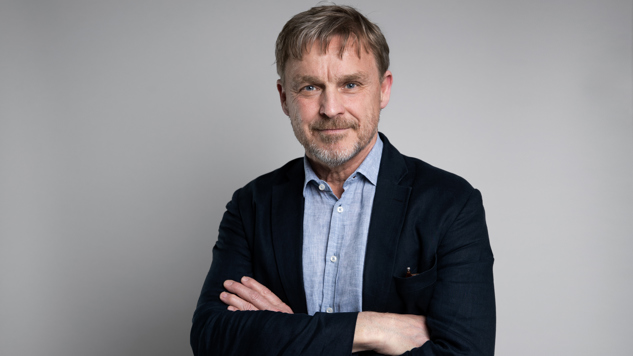Joakim, you have been Chair of Delmi since its initiation in 2013. Tell us a little about why the delegation was founded and what the idea was!
Our creation is based on the agreement on migration issues reached between the then Alliance government and the Green Party, which emphasised, among other things, that there was a great need for socially beneficial research in the field of migration. At that time, there was not much migration research at all, and the research that did exist was neither broad enough nor particularly relevant to decision-makers in the field.
But has Delmi yet another mission, more than meeting the knowledge needs of decision-makers?
Yes, the mission is also to contribute to the migration policy debate and the public discourse on migration and integration. The field is full of hopes and fears. The idea of Delmi is to, first and foremost, contribute with facts and well-founded knowledge that is easy to absorb – regardless of one's views on the subject matter. But the assignment also gives us the opportunity to make proposals on the direction of the migration policy.
With 10 years behind you, you must have achieved a few things?
Yes, we have achieved a lot! To date, Delmi has produced no less than 90 publications, i.e. reports, knowledge reviews, policy briefs and anthologies. Some of this has come about through various collaborations with many different partners: The Swedish Research Council, the AMIF-fund and our sister committee The Expert Group for Aid Studies, to name just a few examples. Internationally, we have also worked with several partners.
What impact or influence do you think Delmi has had?
When we have taken the help of external assessors, I think we see a remarkable breadth in how we reach out. If you look at our publications, we see that they are often used, referred to and cited in the debate and in political decision-making. In addition, we see that some reports are used as course literature at various universities and the website seems to work well as a library for those who want to access both our publications and other documentation, or dig into the statistics for that matter.
What is the most enjoyable part of being Chair of Delmi?
The most enjoyable thing is to work with such competent and skilled employees and also meet the commitment, and sometimes the heat, that exists around the migration issue. At the same time, there is a large curiosity among many people. This gives us at Delmi the opportunity to play a role as a disseminator of knowledge also to an interested audience. When it works well, we get conversations at our seminars and other events that are based on well-documented facts, but at the same time provide room for different kinds of more value-based standpoints. I also think that we help to broaden the perspectives on the migration issue, both by linking it to different policy areas and by putting the issue in an international comparative perspective.
What's next on your and Delmi's agenda?
As it happens, we have a committee meeting on the 10th anniversary of the government decision. Sedan har vi en intensiv avslutning på hösten med en rad aktiviteter, bland annat medverkan på MR-dagarna i Helsingborg den 23-24 november. Then we have a fun but busy autumn with, among other things, activities at the MR Days in Helsingborg on 23-24 November. In addition, we have two exciting launches to look forward to: on Lucia Day, 13 December, a report on early intervention for new arrivals will be released, and on 15 December we will arrange, together with the Swedish Research Council, a seminar on, among other things, the integration of young foreign-born people.
Photo: Kristian Pohl, Regeringskansliet
